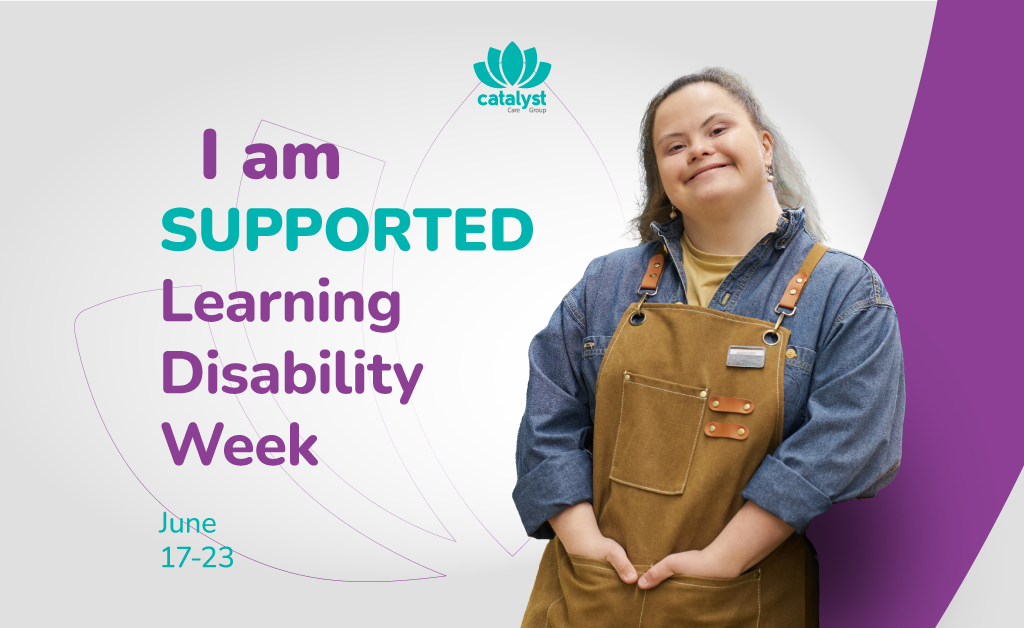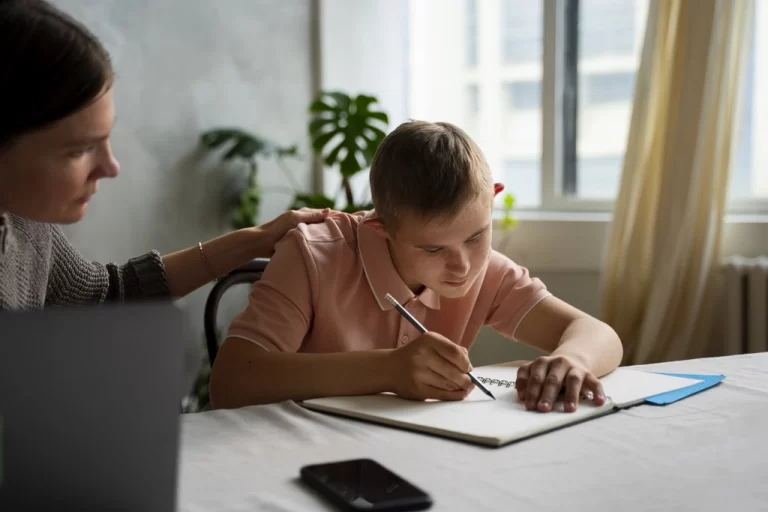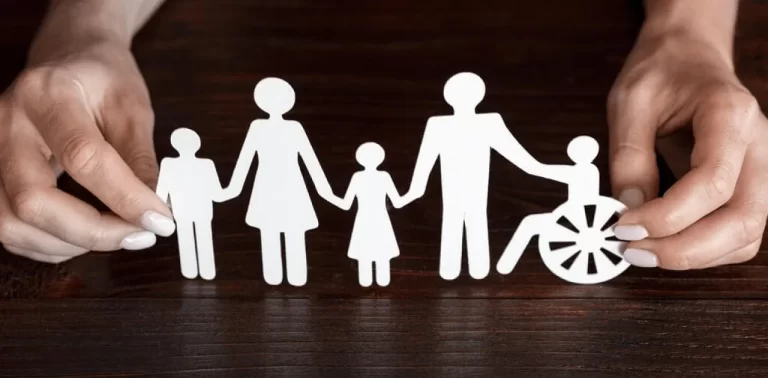Supporting people with a learning disability is not just about addressing challenges; it’s about recognising and removing the barriers imposed by society. Our support can transform lives, providing a more inclusive, understanding, and compassionate world. “Will you support me?” Our answer can make all the difference.
A learning disability does not define a person’s capabilities; it simply means processing and learning information differently. With the right support and understanding, people with a learning disability can thrive and achieve their fullest potential. Find out why our support matters and how our collective efforts can make a difference in people’s lives.
Why Support Matters
The right support can transform people’s lives in so many ways.
Some examples of proactive support include:
- Empowerment: Empowerment helps people living with a learning disability gain confidence and independence. When receiving the right support and encouragement, people can take control of their lives, learn new things and achieve personal growth.
- Inclusion: Inclusive environments ensure that everyone, regardless of their abilities, feels valued and part of the community. This nurtures a sense of belonging and reduces the stigma and misconceptions associated with learning disabilities.
- Equal Opportunities: With humanised support, people with a learning disability can access the same opportunities as their peers. This includes equal access to healthcare, education, employment and an active social life.
Making a Difference
We can make a significant difference in the lives of people living with a learning disability by taking these actions:
- Be Patient and Understanding: Patience and giving people time to process information is important. Understand that some tasks may take longer and require different approaches.
- Provide Encouragement: Positivity and encouragement can boost confidence and motivation. Celebrate successes, no matter how small, and provide constructive feedback.
- Adapt Our Communication: Use clear and concise language and be willing to explain things in multiple ways. Visual aids and hands-on learning can be particularly helpful for some people.
The Role of a Support Worker
Support workers play a crucial role in improving people’s quality of life. These dedicated professionals provide personalised care and assistance tailored to each person’s unique needs, promoting independence and empowerment. They work closely with people and their families to develop practical skills, such as managing daily tasks, improving communication abilities, and building social connections.
At Catalyst Care Group, our support workers advocate for the rights and inclusion of people living with a learning disability, ensuring they have access to the necessary resources and opportunities. Their empathetic and patient approach creates a nurturing environment where people can thrive, grow, and achieve their full potential. The impact of support workers extends beyond the people they serve and contributes to creating a better future for the community in which every person’s rights will be met and respected.
The Role of Speech and Language and Occupational Therapy
The expertise of OTs helps address specific challenges and enhance overall quality of life. They use a holistic and evidence-based approach to help people improve their independence and abilities. Furthermore, the main goal of SLTs is to assess and understand the unique communication needs of each person. This involves designing and implementing personalised intervention plans, including techniques for improving verbal communication and addressing language challenges.
To achieve the best possible outcomes, our speech and language therapists use a variety of innovative and digital tools and techniques, including:
- Talking Mats– A visual communication tool that helps people living with a learning disability express their thoughts and make decisions more effectively by using symbols and pictures.
- Visual Charts– Tools that use images and symbols to provide better communication and understanding.
- Multimedia Avatars– Multimedia avatars are digital representations that aid people in communication and learning by providing interactive, visual, and auditory support.
- Video Stories– Custom-made videos illustrating social stories or specific scenarios to facilitate understanding and learning.
- Visual Communication Aids– Tools like picture exchange systems and symbol boards can assist people in communicating their needs and desires.
- Direct Observation Tools– Techniques for observing and analysing communication behaviours in real-time to inform intervention strategies.
- Mindfulness Techniques– Strategies to help people manage stress, anxiety and mental health difficulties.
The Role of Positive Behaviour Support (PBS)
Positive Behaviour Support (PBS) provides proactive support for people living with a learning disability. It offers individualised and evidence-based support to manage and reduce behaviours of concern. PBS practitioners adopt a person-centred approach to understand each person’s strengths, preferences, needs, and desired outcomes.
To provide the right support, our PBS practitioners use a variety of tools and techniques, including:
- Functional Behavioural Assessments (FBA): A systematic method for identifying the triggers and purposes of challenging behaviours.
- Cognitive Behaviour Assessment Tools: Tools used to evaluate and address cognitive processes related to behaviours.
- Direct Observation Tools: Techniques for observing and recording behaviours across various settings.
- Environmental Assessments: Evaluations of a person’s surroundings to create supportive and enabling environments.
- Data Collection Tools: Tools such as behaviour rating scales for tracking and analysing behaviour patterns.
- Proactive and Calming Strategies: Techniques designed to prevent behaviour that challenges and incorporate calming methods.
- Trauma-Informed Care via the PACE Model: An approach focusing on Playfulness, Acceptance, Curiosity, and Empathy (PACE) to support people who have experienced trauma, including PTSD and generalised anxiety disorders.
- Mindfulness Techniques: Practices aimed at helping people manage stress and enhance emotional regulation.
- Role Playing: Simulation exercises used to practice and reinforce positive behaviours and social skills.
- Teletherapy: Providing support and interventions through remote therapy sessions via digital platforms.
Supporting people with a learning disability is not just about addressing challenges; it’s about recognising and removing the barriers imposed by society. Our support can transform lives, providing a more inclusive, understanding, and compassionate world.
“Will you support me?”
Our answer can make all the difference.













